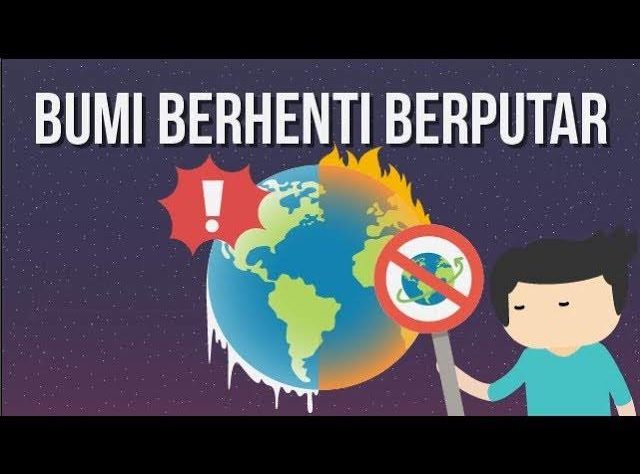What would happen if the earth stopped rotating? If the Earth suddenly stopped rotating then planet Earth would be uninhabitable. Here’s a brief explanation of the impact when the Earth stops rotating: What happens if the Earth stops rotating?
Here are some of the consequences if the Earth does not rotate:
Sudden stop
Launching NASA, if the Earth stopped rotating suddenly, the atmosphere would still move at the Earth’s original rotational speed, which is 1,100 miles per hour at the equator. All landmasses will be clear of anything that is not attached to the Earth’s bedrock as it continues to spin. This means that rocks, topsoil, trees, buildings, including the ocean will be swept into the atmosphere and will be destroyed.
In fact, if the Earth were to stop for more than a minute, it would cause everything to slow sideways by three-quarters of Earth’s gravity. So, the Earth feels like it’s descending like a 38-degree angle from the vertical. It is capable of knocking down most buildings.
Land change
Citing Science Focus, if the Earth slowed down for several years, instead of stopping suddenly, it would still result in disaster. Without centrifugal force, the oceans would move toward the poles. As a result, the ocean depth will drop to 8 kilometers around the equator. Thus, Earth’s water will be divided into two large polar oceans separated by a land belt in the middle. To illustrate, everything in northern Spain would be underwater as well as all of Antarctica.
Hot and frozen
Once the Earth does not rotate on its axis, one day lasts for a year. Launching ABC, half of the planet Earth will continue to get hot from the Sun and heat the planet to more than 100 degrees Celsius. The great central continent would be the hottest and the remaining lakes and rivers would boil blown to the poles by strong winds. While half of the Earth will face the cold of space. Life can continue in the narrow twilight zone between the hot and cold parts. However, this twilight zone will slowly shift over a period of one year according to the Earth’s orbit around the Sun in a year.
Sun radiation
Citing The Science Explorer, the Earth’s magnetic field is formed due to the rotation of the Earth and the composition of the metallic iron core. If the Earth stopped rotating, the magnetic field would disappear leaving us unprotected from the Sun’s harmful ultraviolet radiation and the deadly solar wind.
All Things Fly East
Without us realizing it, the Earth is actually rotating at a fairly high speed. We just don’t feel it because since we were born, the Earth has been rotating, and the objects on the Earth’s surface have also rotated, including us.
If the Earth stopped rotating suddenly, all objects on the Earth’s surface would fly eastward at high speed, before finally falling back down. Why east? Because the Earth’s rotation is moving eastward.
This becomes dangerous because objects fly at high speeds, which are between 800 miles / hour (about 1287 km / hour) to 100 miles / hour (about 1609 km / hour). If we are hit by a soccer ball that has such a high speed, it will definitely hurt.
But not only that, on Earth there will also be giant tidal waves and hurricanes. The loss of Earth’s rotation makes the waters of the seas and oceans form a giant tsunami that moves eastward.
When the Earth stops spinning suddenly, Earth’s atmosphere will still move so that the air flow has a very high speed, which is 1100 miles / hour (about 1770 km / hour). However, it is also possible that most of the atmosphere will be lost.
All Water on Earth Gathered in 2 Oceans
When the Earth rotates, water tends to gather at the equator due to the centrifugal force. The force will disappear along with the cessation of the Earth, so the water will be redistributed to form 2 large oceans at the poles.
The receding of the water will make the land at the equator rise and form a large continent. In fact, it is estimated that its enormous size can cover most of the Earth’s surface.
The rotating earth emits a large amount of kinetic energy. When it stopped, the Earth would shake to its core. As a result, the Earth’s surface will experience storms, volcanic eruptions, and earthquakes.
The shape of the Earth that is slightly bulged at the equator and flat at the poles will turn into a perfect sphere if it no longer rotates.

